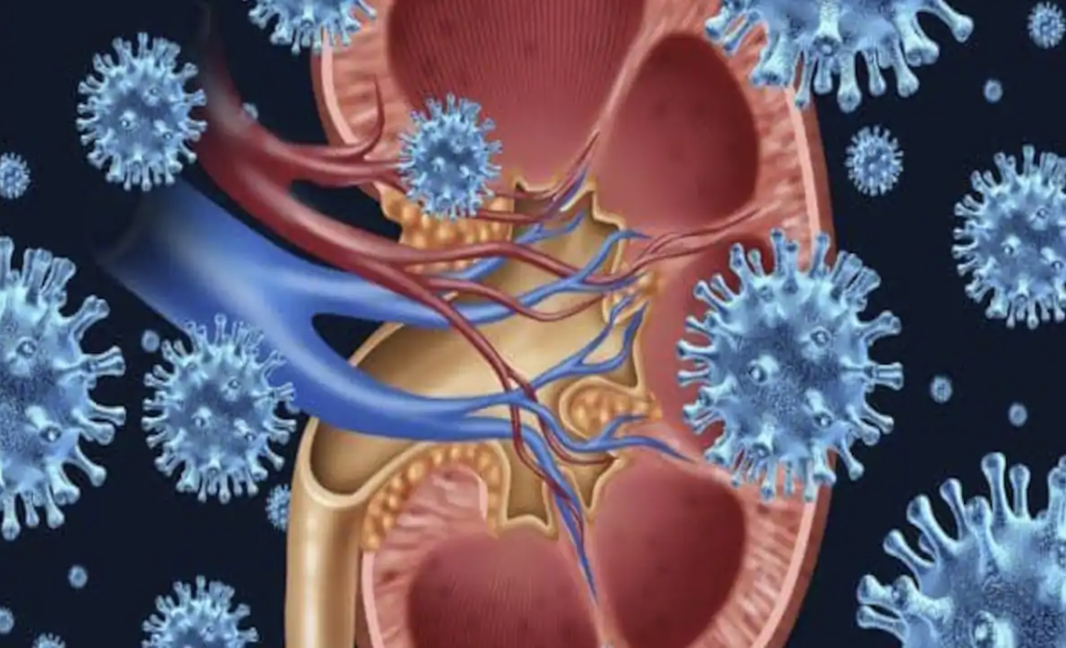Symptoms
Symptoms of a kidney infection may include one or more of the following:
- Frequent and painful urination
- Back, side (under the ribs) and groin pain
- Chills and high fever
- Nausea and vomiting
Kidney infection can be life threatening and medical attention should be sought immediately, please call our office for an appointment.
Causes
Normally the urinary tract keeps bacteria out. Bacteria such as E. Coli, which are normally in the intestines, can occasionally enter the bladder. In that situation, a bladder infection can sometimes occur. While in the great majority of cases the infection stays in the bladder, it will infrequently migrate up one or both ureters and into the kidneys, causing a kidney infection.
Kidney infections are more common in patients with frequent bladder infections, or in situations where the urine does not drain properly. This can occur with kidney stones, tumors that block the ureters, or structural abnormalities.
Patients with diabetes or weakened immune systems are also at greater risk of kidney infections.
Pregnant women with a urinary tract infection should also be seen promptly as kidney infections in this population are potentially more serious.
Diagnosis
Many other conditions in the abdomen and pelvis can cause symptoms that mimic a kidney infection. Your health care doctor will want to diagnose this correctly so the proper treatment can be rendered.
The following tests may be utilized:
- Medical history – your doctor will ask a number of questions about your current condition and your past medical history
- Physical exam – this will likely include an abdominal exam to assess for swelling and tenderness
Urinalysis a sample of urine will be evaluated for evidence of infection, such as white blood cells and bacteria
- Urine culture – a standard urine culture may be done. This is generally sent to a lab. It can also be negative in the face of infection, particularly if the patient has already taken an antibiotic
- PCR (polymerase chain reaction) – this is a relative new test that uses DNA analysis to detect bacteria. It tends to be more sensitive than a standard culture.
- Kidney ultrasound – an ultrasound examination will sometimes be performed to look for kidney abnormalities, particularly evidence of stones and/or obstruction. Ultrasound, however, can be completely normal in a patient with a kidney infection.
- CT (computerized tomography) – not usually needed to diagnosis a kidney infection, but like a sonogram, can be helpful to look for other issues such as stone and/or obstruction.
Treatment
Kidney infections are treated with antibiotics. In many cases this can be done orally. In more serious cases, or if nausea / vomiting prevents the use of oral antibiotics, the patient will need IV antibiotics. Some patients will require IV fluid support and even intensive care monitoring and treatment. While bladder infections in women can often be cured with 5 days of antibiotics, if a kidney infection is diagnosed, it typically requires 2 or more weeks of antibiotics.
In situations that involve obstruction, a ureteral stent may be needed to relieve obstruction of the kidney.
This is done in the operating room. Rarely, patients may develop abscesses in the kidney, and these may require procedural drainage as well.
If you feel that you may be experiencing the symptoms of a kidney infection call the office to book an appointment.

